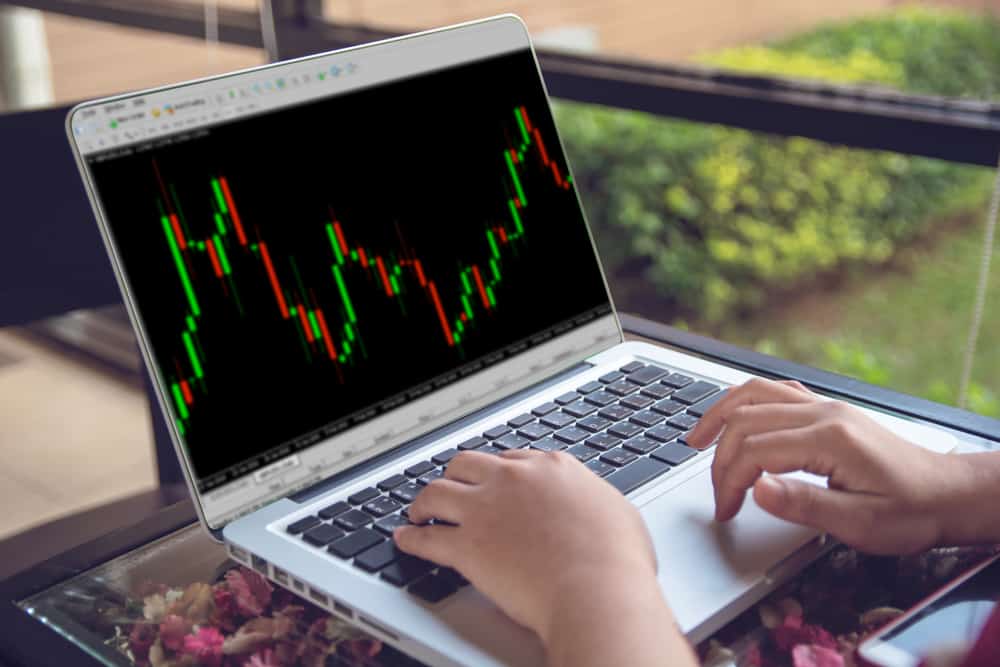Is Forex trading legal in India? How to trade forex in India?
What is Forex Trading?
Forex and Currency Trading in India, commonly known as Foreign exchange or FX, is a global, decentralized market in which all currencies from various economies are bought, sold, and traded. The foreign exchange market is the world’s largest liquid financial market. The Bank for International Settlements (BIS), in its 2019 Terrinial Survey, found the average turnover of the foreign exchange market to be $6.6 Trillion daily, which vouches for the position of forex as the world's most actively traded market. However, not everything that shines is gold, and all trades come with a consideration. Therefore, before learning how to trade forex in India, you must know the answer to the proposition ‘is forex trading legal in India”.
Simply defined, forex trading in India is the process of buying and selling (trading) currencies; If you have ever made a trip outside India, then congratulations! You are no stranger to forex! Let's understand this with a simplified example; if you converted your rupees (INC) into euros during your visit to, let's say, France, the rate of foreign exchange between the two currencies, depending on supply and demand at the moment, is what dictated how many euros you received for your rupees. Furthermore, the currency rate is highly liquid and frequently varies, necessitating valuable talents and a thorough understanding of the market-based trading system.
- Gainers & Losers
- Forex
- Commodities
- Indices
- Shares
- Name
- Buy
- Sell
- Change
How does the Currency Exchange Work?
As it is commonly known, equity trading in India takes place through the two major exchanges, the NSE (National Stock Exchange) and the BSE (Bombay Stock Exchange). However, this is not the case with forex trading in India, which occurs between two parties in an Over Counter Exchange (OTC) market directly. Since there is no such centralized place, you can trade forex 24 hours a day. The forex market is globally controlled by a network of banks. All these banks are situated in four cosmopolitan cities and major currency trading hubs of the world: Sydney, London, Tokyo, and New York. Regardless, currency exchange done via means not authorized by the SEBI can land you in trouble, which is why it is essential to learn if forex trading is legal in India.
What is Forex Trading Function?
As is the case with commodities and shares, the story is different when it comes to forex trading. It occurs directly between two parties or traders in an over-the-counter (OTC) market rather than through exchanges. The aforesaid OTC market is classified into three types of currency markets: Forward, Spot, and Futures. While forex trading involves the selling of one currency to purchase another, it is always quoted in pairs. To put it another way, the price of a forex pair is the value of one unit of the "base" currency concerning the "quote" currency. Each currency in the pair is represented by a code comprising 3 letters. Two of these letters represent the region whereas one letter denotes the currency being traded.
Besides the denotation in letters, these pairs are further categorized into the following classes;
Major Currency Pairs: These pairs are actively exchanged. Seven currencies account for eighty percent of all total forex trading. These are USD/CHF, GBP/USD, USD/JPY, and EUR/USD.
Minor Pairs: These pairs are those that are traded seldom. Instead of the US $, some of the world’s major currencies are continuously pitted against each other -GBP/JPY, EUR/GBP, EUR/CHF.
Exotics: This is pitting any of the world's major currencies against a weaker one -EUR/CZK, GBP/MXN, USD/PLN.
Regional Pairs: These pairs are characterized by regions.AUD/SGD, AUD/NZD, and EUR/NOK.
To trade forex, a multitude of strategies and platforms are available. One such way is the buying of one currency while concurrently selling another. Ever since the conception and emergence of the Forex trade market, trades have been majorly carried out via forex brokers.
However, the market has evolved and is at its imaginable peak in the current times, and the traders can easily take advantage of the benefits of forex price movements by trading derivatives like CFD trading. (CFDs are leveraged products that enable traders, whether to create a position for a relatively small portion of the trade's original value, whether individual or institutional). However, while a very lucrative business, it is essential to find out if forex trading is legal in India.
One does not assume ownership of the asset in this kind of trade, which is a contrast to the non-leveraged products. Instead, one takes a position based on the concern as to whether the market will rise or fall in value, which is essentially the same as estimating the outcomes of a certain set of factual matrices based on conventional information.
However, while it is relatively easy to maximize profits with leveraged products, they can also drive you towards losses if the market goes against you. Thus, it is essential to learn how to trade forex before diving into this market.
Is Forex trading legal in India?
Forex trading in India legal or illegal:
It is a well-established truth that any person who is an Indian citizen is barred from engaging in forex trading in India through any online forex trading platform under any circumstances, as directed by SEBI and supervised by RBI. It is to reduce the risk of currency fluctuations, binary trading, and the security of the trader and the currency. The RBI issued a circular in 2013, in which, it prohibited currency trading in India via the means of online trading venues. If you are wondering if forex trading in India legal or illegal, here’s your answer; Forex trading is a safe practice and one that could help the national economy, thus, the regulatory institutions do not Barr the citizens from indulging in it altogether. It is considered entirely lawful when practiced through designated foreign exchange trading platforms authorized by the SEBI and when the base currency is INR (Indian Rupees). Simply expressed, the government only restricts trading for Indian nationals to currency pairs that are pegged to the Indian Rupee (INR).
As an Indian national, as long as you trade through a specific Indian brokerage that gives you access to Indian exchanges such as the MCX-SX, BSE, and NSE and also gives you access to currency derivatives, your trades are legal. Initially, USDINR, GBPINR, EURINR, and JPYINR were the only trading instruments. However, as of December 2015, the Reserve Bank of India has enabled exchanges to provide cross-currency futures contracts and exchange-traded currency options in three more currency pairs, namely USD-JPY, GBP-USD, and EUR-USD.
Forex Brokers in India
Just like one needs a license or a platform to practice law, Brokers, according to Investopedia, are companies that give traders access to a global marketplace where they may trade currencies. The exchange always takes place between two separate currencies, indicating that forex traders either purchase or sell the pair they want to trade. Professional terminology for forex traders includes currency trading brokers and retail forex brokers.
A large portion of these forex broker firms, however, only deal in a very small percentage of the total foreign exchange market volume, whilst these brokers are used by the retail currency traders to gain margin access to the twenty-four-hour market of currency trading in India to make speculative forecasts. Large-scale organizations such as industrial firms and institutions can make use of the Forex broker services provided by investment banks.
The FEMA Act delegitimizes binary trade; this, in turn, necessitates hiring a broker to conduct the trade on your behalf. Due to restrictions on locally regulated financial institutions in India, the only method for nationals of India to speculate in the currency market is to use a foreign broker that accepts Indian clients. Even before you hire a broker, you must conduct the necessary research on forex broking legal in India. This will save you from the trouble of investing your money with unauthorized brokers and even become penalized as per the FEMA.
Following is a list of 10 authentic SEBI authorized brokers for Forex in India;
1. XM
2. Mitrade
3. Alpari
4. Olymp Trade
5. FXTM
6. Forex.com
7. OctaFX
8. eToro
9. FBS
10. HYCM
India's Forex Trading Strategies
In any business or trade, the risk of losing money is always greater than that of doubling it, thanks to the liquidity of the market in terms of the daily trading volume. The following are some of the most common approaches to forex trading that you can use to get started:
Price Action Strategy – One of the most commonly used forex tradings in India strategy is the price action strategy. Price Action Strategy is commonly compatible with all kinds of market conditions and is fully dependent on the bulls or bears of price action in currency trading in India.
Trend Trading–It is essential to first determine the direction of the currency price movement before settling on an entry point. Traders can use online tools like moving stochastic indicators, averages, and relative strength indicators to support their analysis.
Counter Trend Trading - A transaction is conducted against the current trend of this approach, in the hopes of making tiny profits, and is based on the assumption of the reversal of all trends.
Range Trading -Trades are made inside a defined range of currency values, and traders must find advantageous pricing conditions to trade, with price levels often determined by currency demand and supply.
Breakout Trading - In this style of trading, a trader joins the market when it is rising out of a previous trading range, i.e., a breakout.
Position Trading - It is primarily employed by experienced veteran traders and involves studying the charts after the day. To perfect this approach, one must have a firm grip on the market's fundamentals.
Carry Trade– The carry trade strategy depends on the interest rate gap between the two countries whose currencies are subjected to trade. This entails buying a higher-interest currency and selling a low-interest currency and is thus regarded as a fairly profitable technique.
While all these strategies offer a safe and reliable way to indulge in the forex market, you must know if forex trading is legal in India or not.
How to Trade Forex in India?
In this section, we will provide you with a step-by-step guide to help Indian traders get started with forex trading: But before starting with the first step, it is crucial that you learn about the legal status of different ways of forex by researching is forex trading legal in India.
Step 1: Purchase a digital device with high-speed internet access.
Any e-device can be used to learn how to trade forex in India. Currency pairs listed on the stock exchange have a lot of volatility in their exchange rates. A personal device that can continuously track these movements is required for successful FX trading.
Step 2: Search the Web.
There are a variety of foreign exchange brokers available online. However, it is pertinent to note that forex trading in India via online trading platforms is delegitimized in India as per the Foreign Exchange Management Act (FEMA) 1999. Therefore, examine each broker's website to see if they are registered with the SEBI and offer INR currency pairs for trading. Regulatory information can be found at the bottom of each page. If the trader is unable to obtain such information from the Financial Industry Regulatory Authority (FINRA), the Securities Exchange Commission (SEC), or other similar regulatory bodies, the broker cannot be trusted.
Step 3: Create an Account.
A trader must create a new account on the forex broker's website/ or by contacting the broker via phone or email. To open a new account with several forex brokers, you must make a minimum deposit. These brokers also provide a variety of accounts based on the trader's financial objectives. Select the most appropriate choice for that trader.
Step 4: Funds Must be Transferred to the Trader's Account.
To begin trading forex, the trader needs first to open an account and then transfer funds. The trader can choose their native currency and finance their account utilizing a variety of tactics depending on the broker they choose. Bank transfers, wire transfers, and debit cards are frequently used as financing solutions.
Step 5: Install a Forex Trading Platform on Your Device.
Following that, the trader must install the forex trading platform on their computer or smartphone. To maximize forex trading prospects, take the time to customize the platform's style and layout.
Step 6: Begin Your Forex Trading Journey As a Trader.
Before starting to trade forex, traders should practice with virtual money in a few demos. These demos can help traders become familiar with the forex broker's interface without putting their money in danger. Once they have established confidence in using the site, they can start trading forex with real money.
Conclusion
At first glance, forex may persuade you to invest instantly. Forex trading in India is fascinating and a quick way to double your resources. However, before diving in, you must know if forex trading is legal in India, or you'll be exposed to issues that aren't related to your home country. And the more profitable an investment appears to be, the more dangerous it is. Keep in mind, that the less you know, the more danger you are in. Thus, avoid entering a deal that you are unfamiliar with. We hope that this blog has given you a basic understanding of the currency market and given you insight into how to trade forex in India. There's a lot more to currency trading in India, though.
The content presented above, whether from a third party or not, is considered as general advice only. This article does not contain and should not be construed as containing investment advice, investment recommendations, an offer of or solicitation for any transactions in financial instruments. Mitrade does not represent that the information provided here is accurate, current or complete. For any information related to leverage or promotions, certain details may outdated so please refer to our trading platform for the latest details. *CFD trading carries a high level of risk and is not suitable for all investors. Please read the PDS before choosing to start trading.
- Original
- Trading Analysis


Risk Warning: Trading may result in the loss of your entire capital. Trading OTC derivatives may not be suitable for everyone. Please consider our legal disclosure documents before using our services and ensure that you understand the risks involved. You do not own or have any interest in the underlying assets.







